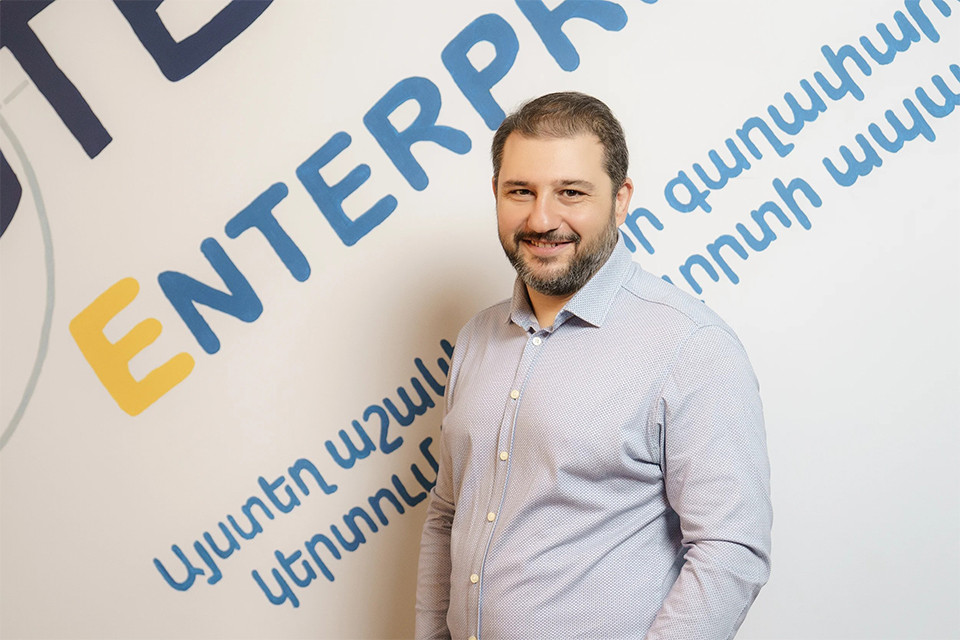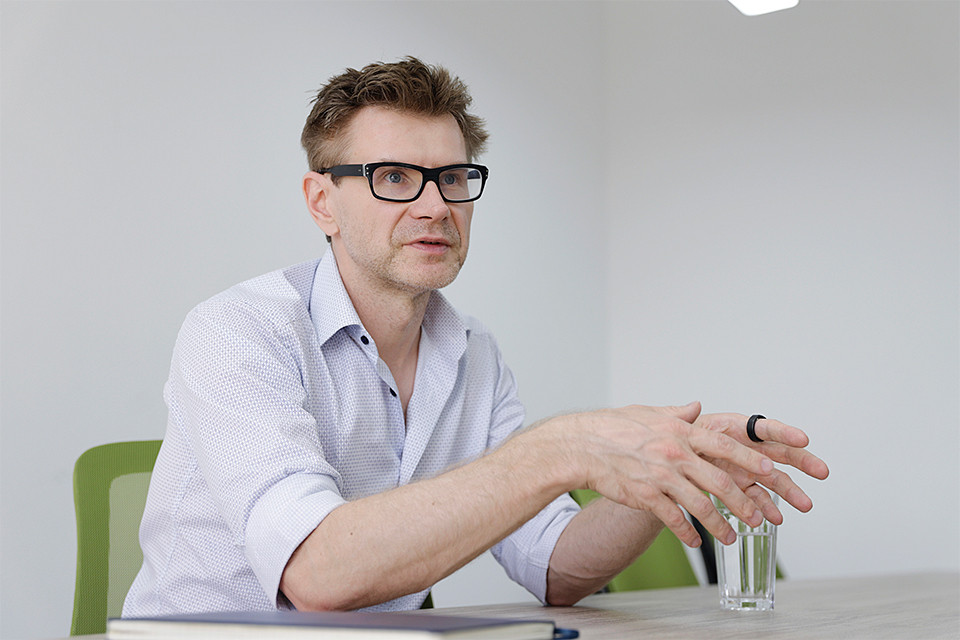-
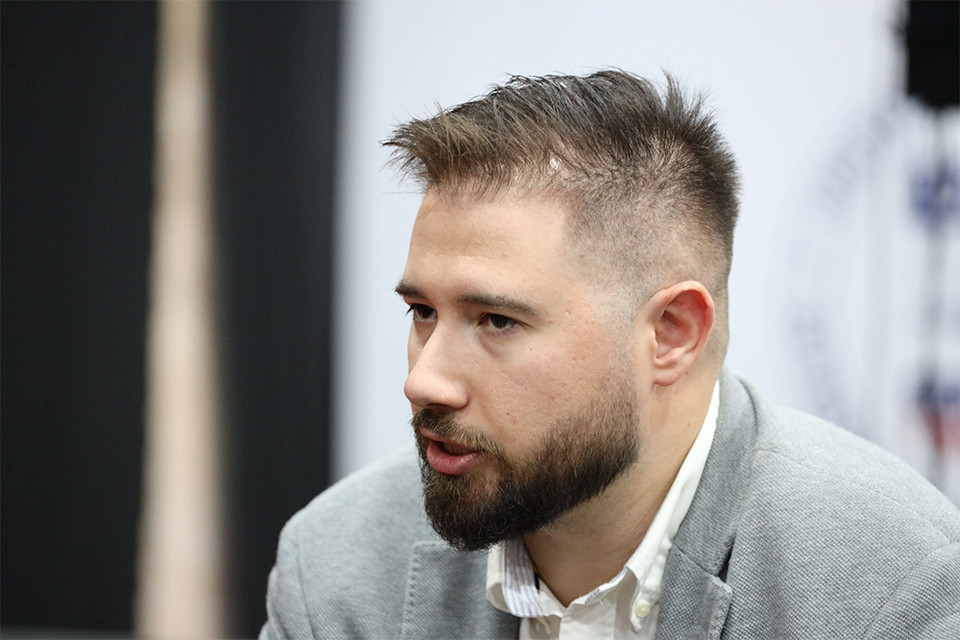
Alfredo Gomez Soria
-
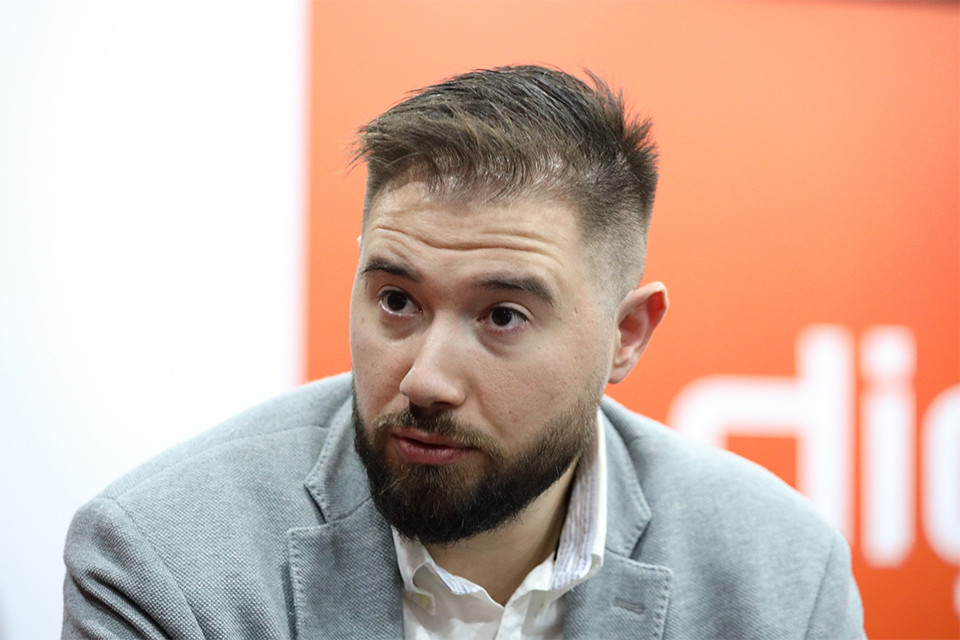
Alfredo Gomez Soria
-
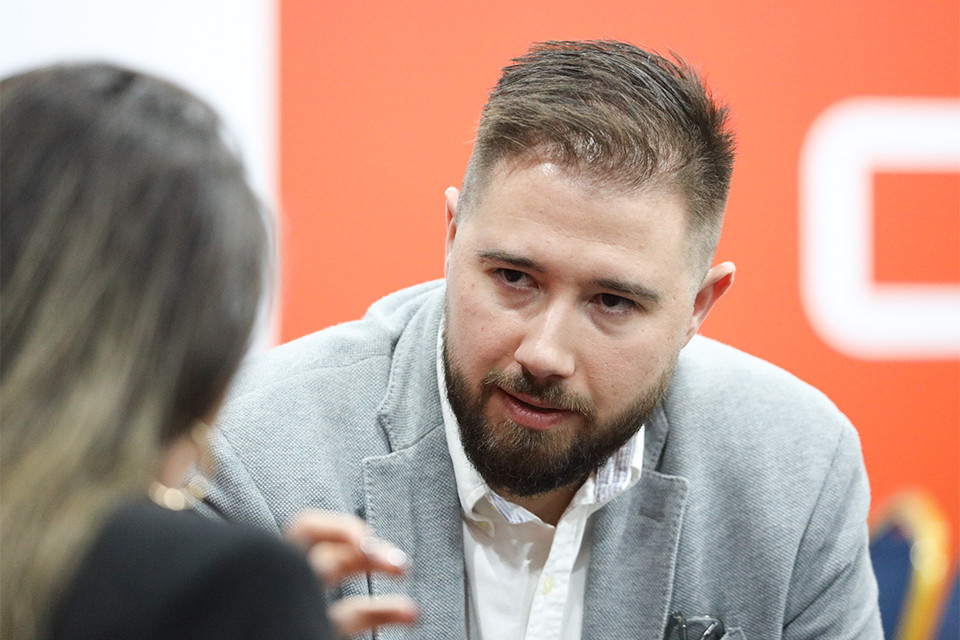
Alfredo Gomez Soria
-
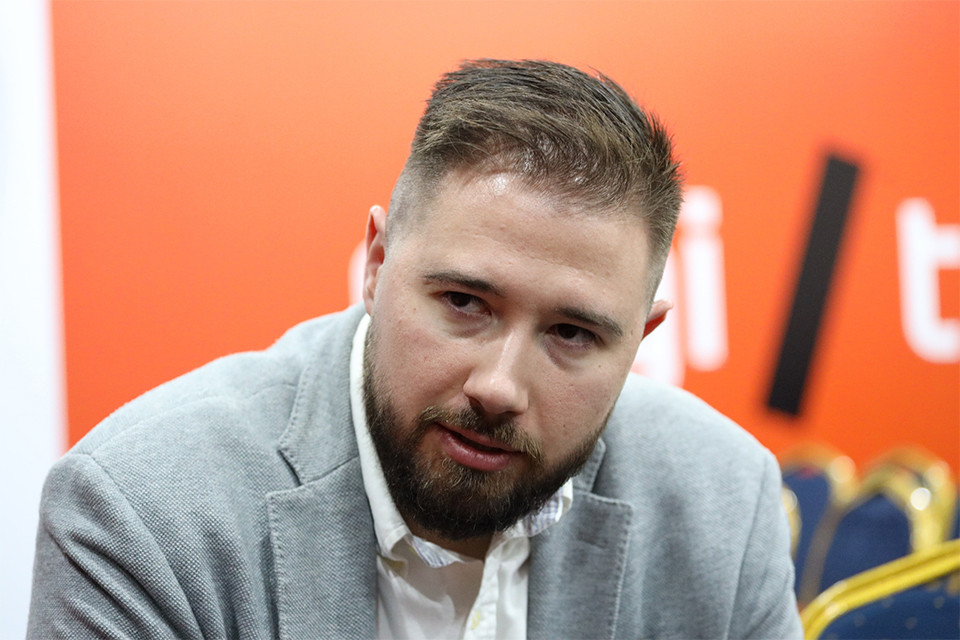
Alfredo Gomez Soria
17:30 | 08.10.24 | Interviews | exclusive 24241
Alfredo Gomes Soria: on the Plug and Play’s vision and launch in Armenia
The company "Plug and Play Germany GmbH" has won the "Acceleration Program" grant competition from the Ministry of High-Tech Industry of Armenia and is implementing its program in Armenia.
Alfredo Gomez Soria, Senior Corporate Innovation Manager at Plug and Play, talked to iTel.am about the launch of the acceleration program in Armenia, new opportunities for activities in the region, and the 26-week acceleration program planned for Armenian startups.
Plug and Play is a prestigious international innovation platform and startup accelerator headquartered in Silicon Valley. It connects startups, corporations, and investors to drive technological advancement and business growth.
Operating in multiple countries, it supports startups through mentorship, funding, and networking opportunities, helping them expand their geographic reach and achieve success in various industries.
It collaborates with prominent organizations such as VISA, ROCHE, JAGUAR LAND ROVER, WALMART, Mercedes-Benz, VOLVO, PORSCHE, NISSAN, and others. Plug and Play’s portfolio includes more than 30 unicorn companies.
Can you tell us about the vision and mission of Plug and Play Accelerator?
Our mission for the last 20 years has been to make innovation accessible to everyone anywhere in the world.
We have been doing it through one unique element, which is startups for us. We believe that startups are the engine of innovation and probably like 80-90% of the economies.
If you look at some of the top companies in the US nowadays, they've only been out there for 20-30 years. Whereas if you look in some old school industries like in Germany, you see companies that have been out for 100-200 years, which are completely losing out on innovation. So, we do believe that every single person, university, government, and company has to constantly innovate. We want to make sure, you know, that companies, entrepreneurs, and founders can continue to evolve. So, vision and mission are very straightforward. We want to give the resources for the people to be able to excel.
What are the key focus areas or industries that the Plug and Play program aims to support?
We're currently operating in 25 different industries, including energy, sustainability, financial services, insurance, automotive, semiconductors, artificial intelligence, and more. We cover most of the industries.
In Armenia, the Ministry of High Tech is currently in the process of defining its strategy when it comes to high tech. And they're doing this with some partners.
 Alfredo Gomez Soria
Alfredo Gomez Soria
And that's what's really going to allow us and allow Armenia to know which industries they can really excel at. So, if we identify the areas where we know Armenia is very solid and we can help you build on those areas, that's really where the opportunity for the future is. Armenia is leading in terms of chip design, semiconductor design, and Artificial Intelligence. That’s also new opportunities that are growing very fast. Armenia is very strong in defense. There's a lot of innovation coming out of defense in Armenia.
And it's also about software itself. What we have to understand and to be very careful with software as well. A lot of the countries are trying to focus their strategies of foreign direct investment in outsourcing. And this works today, but won't work in 10 or 15 years. So, we have to have this clear vision of where we want to go in the future.
And I think, you know, this happens a lot in the Middle East. If you look at Qatar or Saudi Arabia,they set their Vision 2030, 2040 strategies. And everything that happens in the country is done for a reason. It’s very important, and I think we're on the right track here in Armenia. Once we know the strategy and which areas we want to focus within high tech, how can we capitalize on those areas.
What prompted the decision to launch Plug and Play in Armenia?
What is interesting for us in the region, there are already other international players. For instance, 500 Global in Georgia. Then you have some of the other players playing in the more Central Asia kind of area as well. But Armenia didn't have an international accelerator that could really help the startups access these global markets. We see that Armenia has a very strong human capital, a very strong engineering skill set. There is a lot of investment into STEM topics, into building the future pillar of education, schools topics on robotics, artificial intelligence, etc.
We believed that Armenia could be a great potential market where we could expand Plug and Play into, and where we could bring the connection with global markets. And also, there's an additional element, which was the diaspora. The diaspora is the gateway between Armenia and the world. So, all of these people are the perfect set of skills to capitalize on and leverage to actually make Armenia the regional innovation hub.
 Alfredo Gomez Soria
Alfredo Gomez Soria
We're currently running projects with governments across the world, but specifically big projects in the US, in Lithuania, in Malta, in Uzbekistan, in Saudi Arabia, and now in Armenia. We have many projects in Egypt, Morocco, and many other markets. But we do believe that Armenia is very well positioned for the future when it comes to innovation.
How does that stand out for you and what opportunities do you see? What's the most exciting and surprising thing that you saw here?
The Neruzh 5.0 program last week was very impressive, it was the first opportunity we had an actual touch point with Armenian founders. It was incredible to see the capacity that people had to adapt and evolve. You know, we had startups that came in on Monday with a pitch deck, and left on Friday with a completely different business. So it was also very interesting for us to see the transformation.
The people in Armenia have built a strong resilience, and we see it, we feel it, and we want to make sure that we give them the right resources to be able to grow and scale. So, yeah, we're excited.
How do you select startups for your program? What criteria are most important for you?
We look at the startups, they must have an MVP that we can work with, the potential it has in terms of scalability. We look at what the startup is building, and then we benchmark it versus global competitors.
We don't want to just accelerate startups for the sake of accelerating startups, but we want to accelerate the best startups. So, evaluating that product market fit, that scalability, that access to international markets, that potential for international investments, which contribute to foreign direct investment. So we want to select the best startups.
What partnerships or collaborations have you established with local businesses?
We have very good working relationships with the local VCs, we believe they've done an amazing job so far in the ecosystem, building the ecosystem, funding the ecosystem. Also a lot of them which have had their own startups and are, you know, reinvesting into the Armenian economy.
We've established very good working relationships with universities as well. We believe that universities have, especially in relationship with the Ministry of High-Tech Industry, that component of technology transfer. We believe that technology transfer is a very hot and sensitive topic.
 Alfredo Gomez Soria
Alfredo Gomez Soria
For the future, we also want to expand our collaboration with the Ministry of Education, Science, Culture, and Sports as well, because they play a big role. We also want to expand with the Ministry of Defense. There are many other opportunities, not only with the Ministry of High-Tech, but to really take the whole ecosystem to the next level.
The government can be a big purchaser of services and goods from startups. There's a very interesting model in the US, every time the US government procures services or goods from companies, 5% of the total procured amount has to come from small and medium businesses, and this also means that the small and medium businesses have to go into opportunity to work with the government. On the other hand, it allows the opportunity for startups to have to work with the government, so there's a lot of, again, little mechanisms or little policy-makings, which can play a big role in terms of how to advance the ecosystem.
How many startups applied so far and how to apply?
It's a very simple application which you can find on our website. It closed on the 7th of October. More than 100 startups have applied, we’ll choose 20 of them. And again we want to make sure that we select the best ones into the program.

17:29 | 24.09.25 | Articles
Jacopo Losso on Cross-Border Investments and Why Armenia Attracts Angels


